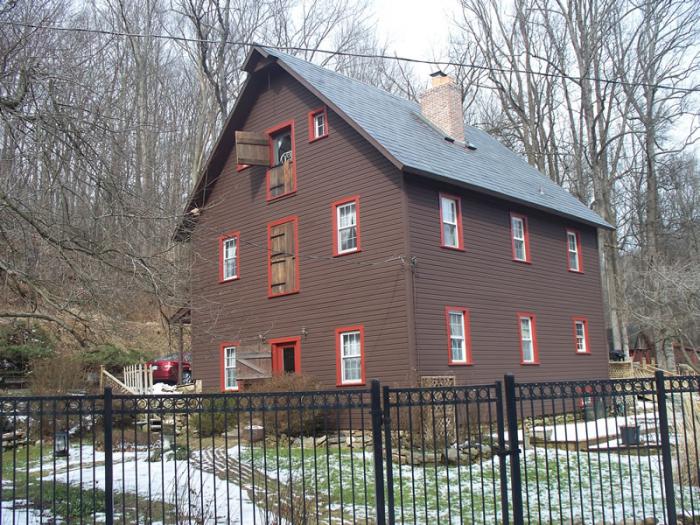
Deep Run Mill/Weeks Mill/Cooper's Mill
| Maryland | USA
Watersource:
Deep Run Mill/Weeks Mill/Cooper's Mill
Exit US 1, go north on MD 136 through the community of Dublin, then continue about 4 miles. Turn right on Deep Run Road and go about 1.5 miles to the mill on the left behind a black cast-iron fence at the junction of Deep Run Road and Cooper Road.

Weeks Mill is shown on the 1858 Jennings/Herrick Map. Located on the site of the present Weeks Mill or Grove Mill on the Week's Folly, Pine Grove and The Grove tracts of land. The property was acquired in 1800 by John Weeks and was owned by his son Benjamin by 1857. The mill sold in 1868, becoming the sawmill of Messer's William Enfield and John R. Day, according to a 1880 state directory.
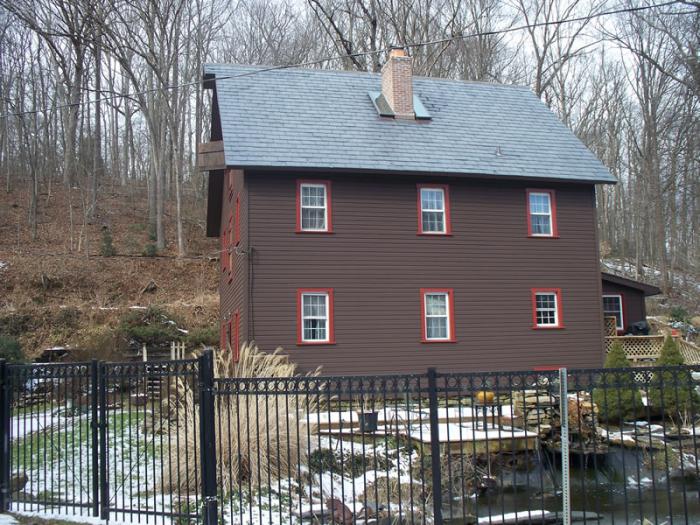
At least by 1880, the mill was leased to Jacob Love, having now been converted to a grist mill. Love’s mill, incorporating a 12 bu/hr elevator, 2 run of stones, 50 bu/day maximum production for a 66 percent custom trade, all accomplished by two employees. The 4.5 foot-wide internal overshot wheel turning at 4 rpm using 12 hp produced 160 bbl flour, 12.2 tons meal, 12.2 tons feed, and 1.5 tons buckwheat flour/annum for a value of $5,000.
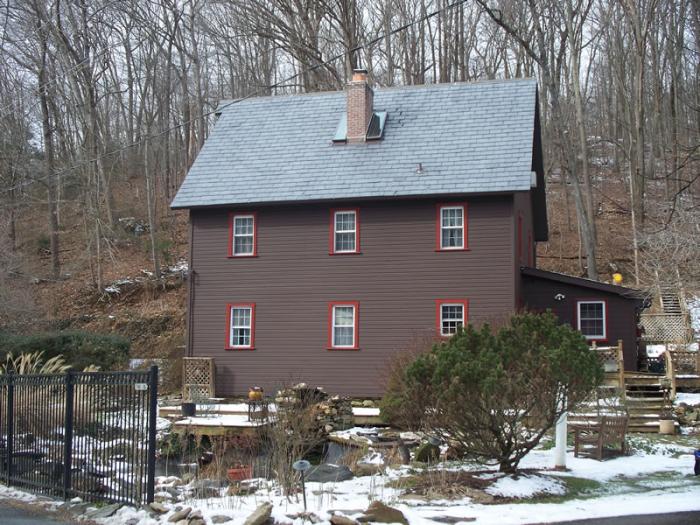
Enfield and Day built a new, larger, mill near Prospect on the Deep Run in September 1885. The new mill was powered by two large turbines, with the stonework done by Caleb Miller, carpentry by Geo. R. Scarboro, and Scherer & Gelay of nearby York, Pa, the millwrights. The new mill title was sold to Thomas Cooper of York, Pa near the end of 1885. A modern roller mill replaced one set of stones by 1900.
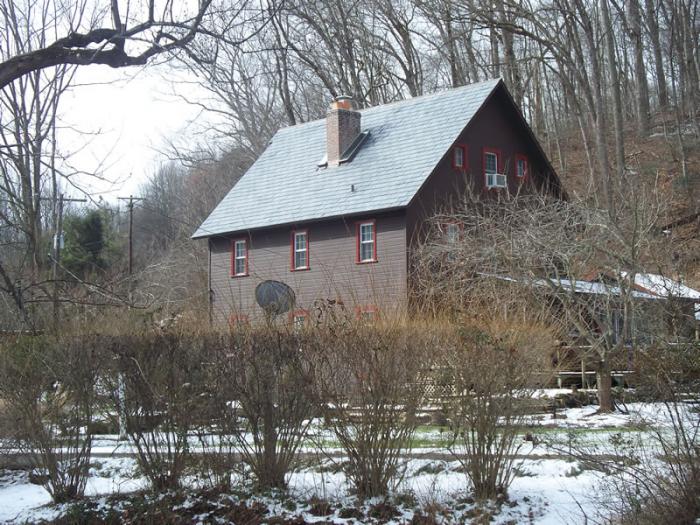
Also about 1900, a modern roller mill machine replaced one of the sets of stones. The mill was also known as “Maple Grove Roller Mills, Oscar P. Stokes prop., Whiteford, Md., Winter Wheat Flour, as substantciated by some advertising flour sacks surviving from the time. GPS: 39.699963, -- 76.283092.
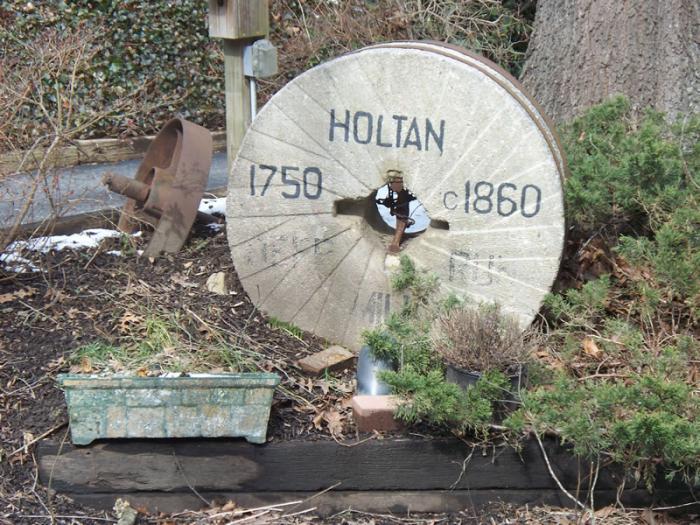
Unfortunately, the mill closed its doors in 1942. During World War II, many men were off to war and were not available to process crops and grain became scarce. What grain there was, was mostly needed for the war effort. The dam washed-out, never to be repaired. Before closing, Mr. Stokes had installed some milling equipment from the Baldwin Mill, where he had once worked. Some millers hired by Stokes to operate the mill were: Marshall Stokes, Howard Hamilton, Jacob E. Yerkes, and Charles W. McFadden.
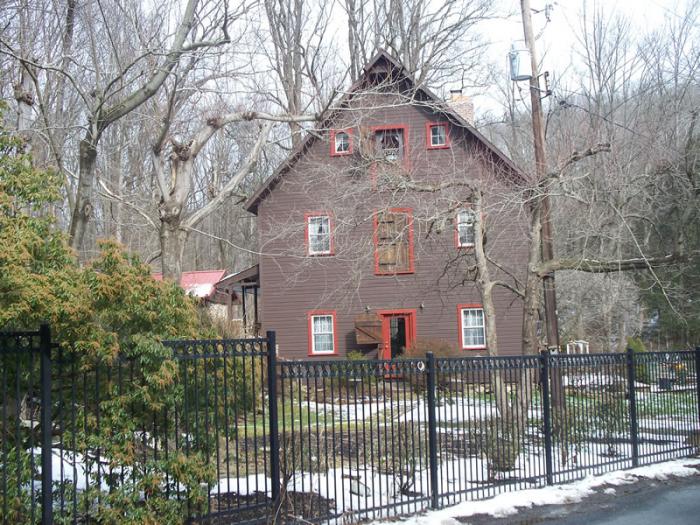
Oscar Stokes deeded the mill to his son, Benjamin O. Stokes in 1951, Oscar dying later in 1971. The three-story frame mill, once grey, then white, now brown with red window and door trim and slate roof, was in a ruined condition in 1965, then was purchased by the present owners, Mr. and Mrs. Andrew Holtan, in 1973 to be converted into a residence and home. The results speak for themselves: Extraordinarily fine.
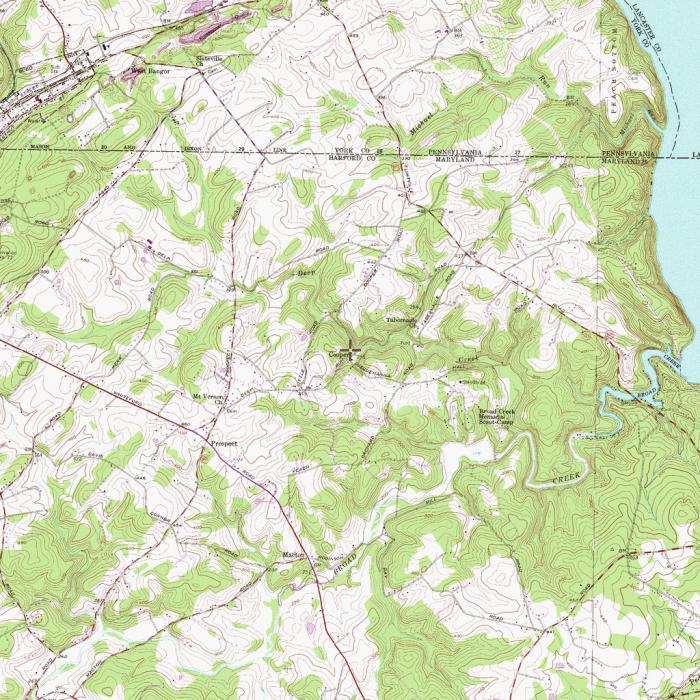
The exact spot of the mill is just past the 'r' on Cooper and up about the height of the letter 'r'.